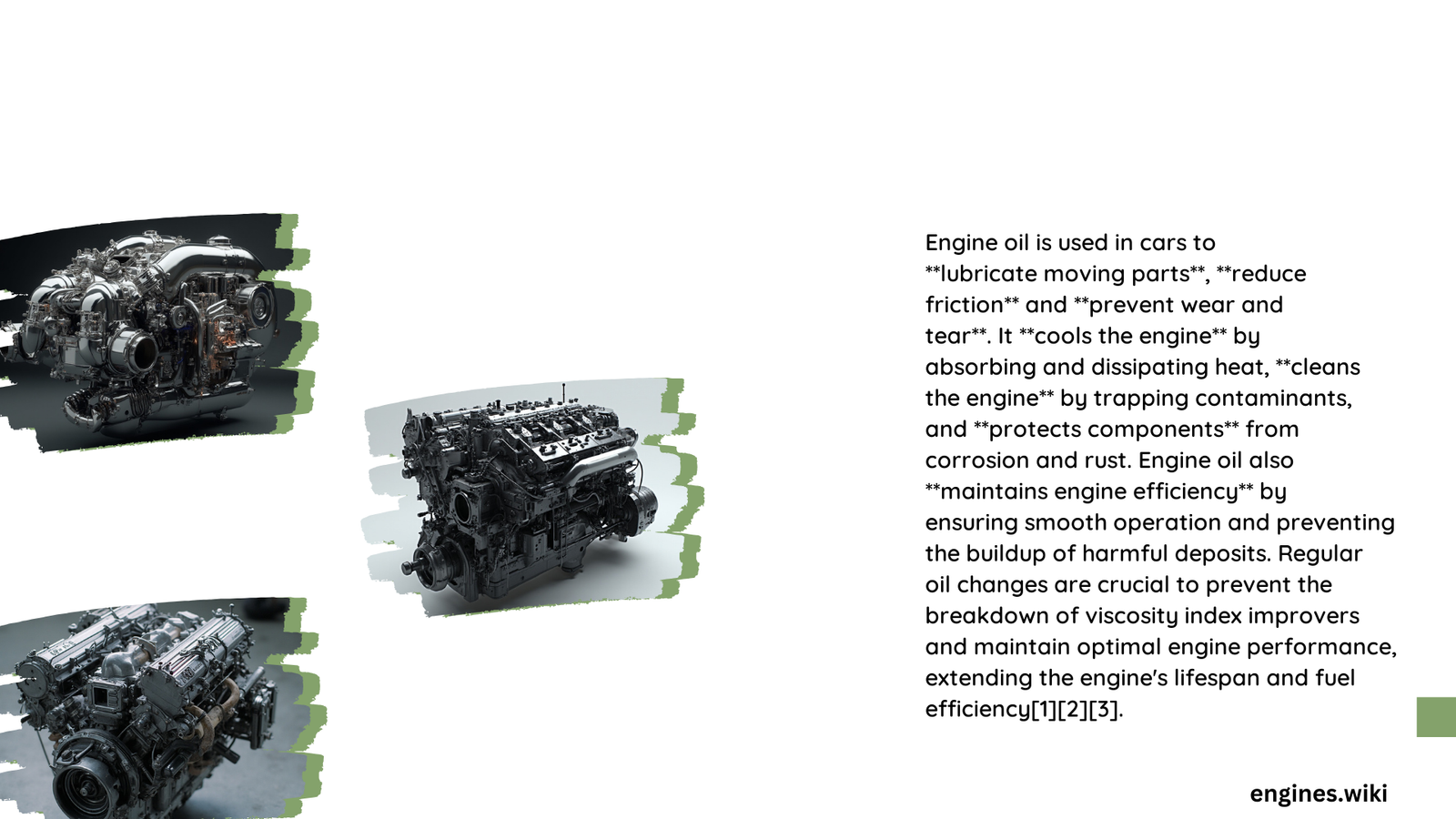Engine oil is the lifeblood of automotive performance, serving as a critical protective mechanism that ensures smooth, efficient, and long-lasting engine operation. By creating a sophisticated barrier between moving metal components, engine oil prevents friction, dissipates heat, removes contaminants, and maintains the intricate mechanical ecosystem within a vehicle’s engine, ultimately determining the longevity and reliability of automotive powerplants.
What Makes Engine Oil Crucial for Vehicle Performance?
Why Does Friction Matter in Engine Operation?
Friction represents the primary enemy of engine components. Without proper lubrication, metal parts would grind against each other, causing catastrophic damage within milliseconds of operation. Engine oil creates a microscopic film that separates moving parts, reducing wear and enabling smooth mechanical interactions.
Key Friction Reduction Mechanisms
- Prevents direct metal-to-metal contact
- Reduces mechanical resistance
- Minimizes heat generation
- Extends component lifespan
How Does Oil Manage Engine Temperature?
Temperature management is a critical function of engine oil. Modern engines generate immense heat during combustion, and oil acts as a sophisticated cooling agent that:
- Absorbs thermal energy from critical components
- Transfers heat away from sensitive mechanical parts
- Prevents overheating and potential structural damage
- Maintains optimal operating temperature ranges
| Temperature Range | Oil Performance | Potential Risks |
|---|---|---|
| Below 180°F | Insufficient warming | Increased wear |
| 195-220°F | Optimal operating zone | Ideal performance |
| Above 250°F | Risk of thermal breakdown | Potential engine damage |
What Cleaning Functions Does Engine Oil Provide?
Engine oil acts as a dynamic cleaning system, continuously capturing and suspending microscopic contaminants:
- Detergent Additives: Neutralize acidic byproducts
- Dispersant Technologies: Prevent particle accumulation
- Filtration Support: Trap and remove debris
- Corrosion Prevention: Create protective molecular layers
Why Are Oil Viscosity Characteristics Important?
Viscosity determines an oil’s ability to flow and protect engine components across different temperatures. Multi-grade oils like 5W-30 provide:
- Cold-start protection
- High-temperature stability
- Consistent lubrication performance
- Reduced mechanical stress
What Protection Mechanisms Does Engine Oil Offer?
Engine oil provides comprehensive protection through:
– Corrosion resistance
– Seal conditioning
– Wear reduction
– Thermal stability
– Contaminant management
Advanced Oil Performance Considerations

Synthetic vs. Conventional Oils
Synthetic Oils
– Superior temperature performance
– Enhanced molecular engineering
– Longer service intervals
– Better protection in extreme conditions
Conventional Oils
– Cost-effective
– Suitable for standard driving conditions
– Regular maintenance requirements
– Basic protection mechanisms
Maintenance Best Practices
- Follow manufacturer-recommended oil change intervals
- Use correct viscosity for your vehicle
- Monitor oil condition regularly
- Choose quality oil brands
- Consider driving conditions when selecting oil type
Technical Insights
The average engine contains approximately 4-6 quarts of oil, circulating through complex passages and performing multiple protective functions simultaneously. Modern oils contain sophisticated additive packages that enhance performance beyond basic lubrication.
Conclusion
Understanding why engine oil is used in cars reveals its complex and critical role in maintaining automotive health. Far more than a simple lubricant, engine oil represents a sophisticated technological solution protecting one of a vehicle’s most valuable components.
